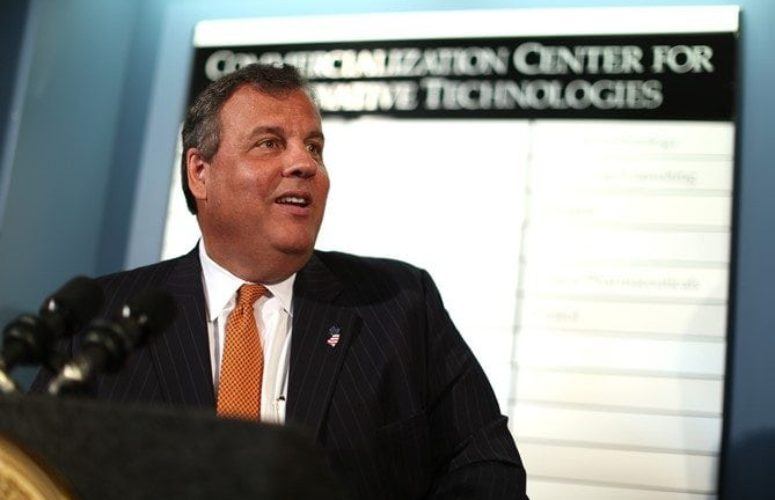
The Pros and Cons of NJ’s Professional Licensing Process
Obtaining and keeping up with licensure is great for one's career, but the process can be time consuming and expensive.
By Meg Fry, Contributing Writer On Sep 7, 2023Last year, New Jersey’s Division of Consumer Affairs (DCA), within the Office of the Attorney General, renewed more than 332,900 professional and occupational licenses and granted 80,000 initial licenses in the state – 15% more than the year before.
“Our State Professional and Occupational Boards set the rules and standards for professional conduct and ensure that all licensees – from healthcare practitioners and hair stylists to tax preparers and plumbers – meet those standards,” says State Attorney General Matt Platkin. “Our Boards are working tirelessly to promote excellence in New Jersey’s professional ranks and ensure our residents have access to the best possible care and services.”
However, professional associations and licensees alike are growing increasingly concerned with the significant delays and frustrations encountered throughout the licensing processes caused by underfunding, understaffing, and outdated technology.
“We should be able to level set, make decisions, and issue licenses much more quickly with the technology available today,” says Jim Schulz Jr., executive director and director of government and public affairs at the New Jersey Dental Association. “When we delay, we’re not only hurting the economy, but we’re also looking at reduced access to care.”
The more than 51 licensing boards and committees within the DCA register, regulate, enforce, and investigate more than 750,000 licensees across more than 100 professions and occupations in New Jersey, ranging from architects and court reporters, to massage therapists and locksmiths.
Most initial licenses and certifications require a plethora of relevant education credits and/or degrees, at least a year of work experience, upfront application fees, and at least one exam.
They also require patience.
“I started studying for the four required exams a week after graduating with my Bachelors in May 2021, and received my Certified Professional Accountant license in March 2023,” says Robert Otten at WilkenGuttenplan in East Brunswick.
Renewals – and a minimum of continuing professional education (CPE) credits – are then required every couple of years.
“This year, I’ll need to take the New Jersey law and ethics course, and then a minimum of 20 CPE credits a year to hit 120 total hours over the next three years,” Otten says.
The lengthy process is often worth it for the additional income and professional advancement opportunities.
“It’s common to hear the highly motivating and attractive statement that licensed CPAs make on average $1 million more,” Otten says.
It’s also common for industries to lose potential employees during what can often be a tedious waiting game.
“The systematic licensing process can take a long time even in the best of circumstances,” comments Nancy Fitterer, president and CEO of the Home Care and Hospice Association of New Jersey and former Chief of Staff for the New Jersey Office of the Attorney General. “And a home health aide, for example, might give up and go take a job at Target that pays the same wage.
“We’re competing with a workforce that can easily go elsewhere if we’re not acting timely enough.”
Money can also be tight during the licensing process.
“A number of candidates will pay out-of-pocket for the costs of their CPA license, which – between registering, study materials, and exams – can cost close to $5,000 all-in,” explains Don Meyer, chief marketing officer for the New Jersey Society of CPAs in Roseland. “And if there’s any delay in getting your license, months could go by without you receiving any promised reimbursement from your firm.”
Big delays can be caused by the smallest of issues – including a missing line on an application.
“If we can’t go to the next step to complete a purchase on Amazon without filling in all the necessary information, why are we able to send in an incomplete online application to a state Board?” Schulz asks. “We need focus groups with licensees to create the best data to drive decisions moving forward, to start – a more user experience-friendly platform and more intuitive mobile applications – and, we should always be looking to other states for more tools, tactics, and techniques to migrate over that will allow our state to expedite, aggregate, and scale our processes more efficiently while maintaining public protection.”
The New Jersey Business and Industry Association-supported Bill A-5283 – put forth in March – would implement many of these suggestions by not only requiring Boards to identify the national average time for approving credentials, but also implement best practices that would effectively process applications within that timeframe. Any Board who failed to do so would be required to reinvest its licensure fee revenues into the Division to further improve efficiency.
“But it’s not quite as simple as a total revamp at the DCA because of the human factor,” says Fitterer. “For example, if the DCA connects directly with a licensee to try to sort issues out, potential employers might be left completely unaware.”
“That’s why we tell our members if they have any questions, or are facing challenges reaching the state Board, reach out directly to the professional organization that represents and supports you,” Meyer says. “We can be a great guide and resource in helping licensees connect throughout the process.”
Despite growing criticism, the DCA has indeed made several improvements over the last couple of years.
For example, during the COVID-19 public health emergency, the DCA made temporary emergency changes to its licensing process to expand the state’s healthcare and mental health workforce by upwards of 50,000 professionals, including expediting temporary emergency licenses for out-of-state practitioners, foreign-licensed physicians, retired professionals, and even some graduates to begin practicing in state while continuing with the standard application process.
As a result, New Jersey recently became a member of three national compacts – the Board of Nursing, Board of Physical Therapy Examiners, and Board of Medical Examiners – as other boards consider joining compacts that similarly permit individuals to obtain multi-state licenses, allowing them to practice in other member jurisdictions.
Finally, the DCA’s diversity-driven efforts today include promoting and making more accessible licensure or certification opportunities to underrepresented communities, active military and veterans, and bilingual immigrants, as well as continuing information sessions for professional associations and students.
“The DCA suggests that once you’re taking the relevant courses and have a promise of employment, send those records in, submit to a background check, pay the application fee, and move the process along,” Fitterer says. “That way, by the time you’re finished, you’ll be set to receive your license shortly.”
Even Schulz says that for all its much-needed upgrades, the DCA does step it up for those individuals who have been languishing within the system beyond the standard deviation of time.
“I do believe the Division has excellent employees who are always happy to address particular needs, and really are looking for ways to improve,” he says.
“Some things are just simply beyond their control.”
OBTAINING THE LSRP LICENSE
The Licensed Site Remediation Professional (LSRP) license is difficult to obtain in New Jersey, requiring at least 10 years’ experience in remediation and, at the time of triennial renewals, additional health and safety training and the written outcomes of all the cases the licensee has worked on during that time.
However, John J. Oberer, a principal, senior vice president, and district office manager for the Philadelphia/South Jersey division of GZA GeoEnvironmental, says he’d get the entire staff licensed if he could.
“The New Jersey program is one of the most expensive, from exam fees running about $150 to annual fees of $900 – and while not all firms pay those fees, GZA gladly does,” he adds.
GZA currently employs licensed Professional Engineers, Professional Planners, Hazardous Materials Managers and 15 Licensed Site Remediation Professionals, including Oberer.
“We stress very hard to incoming staff that we actively want them to pursue career paths that involve licensing,” Oberer says. “That’s because when you have a license on the line, your view of the cases you’re working on changes for the better.”
To access more business news, visit NJB News Now.
Related Articles:





